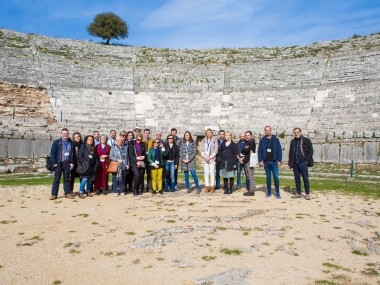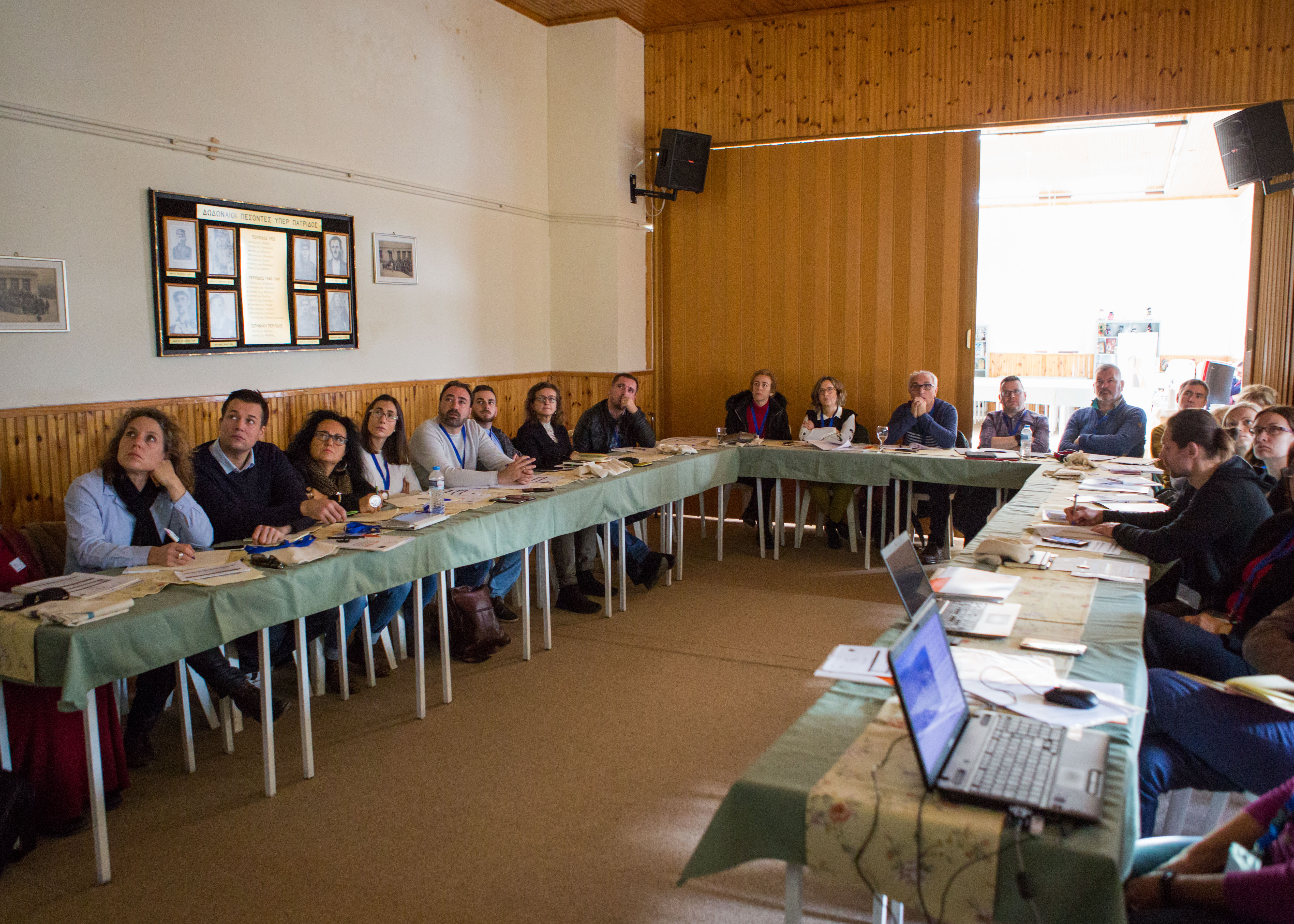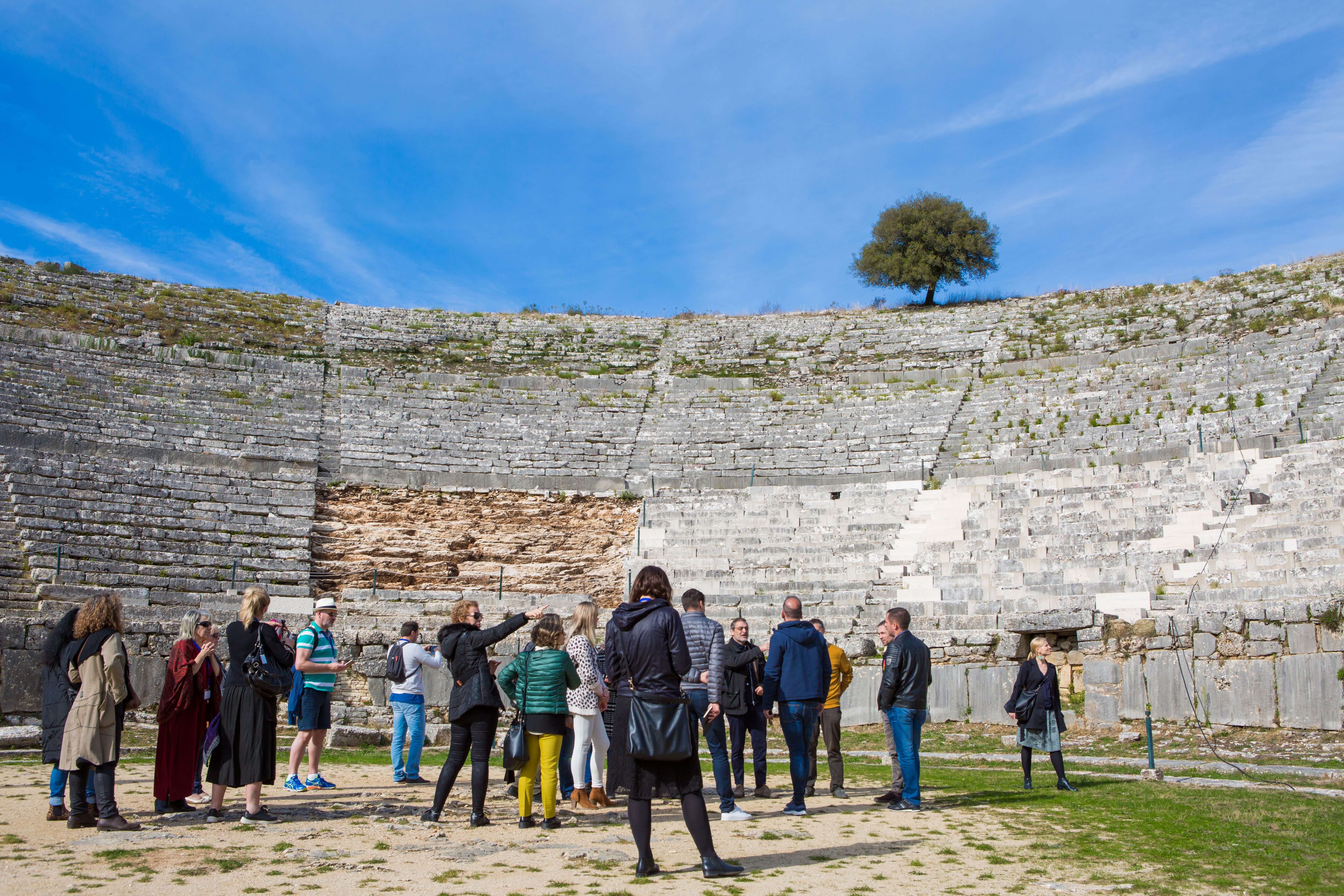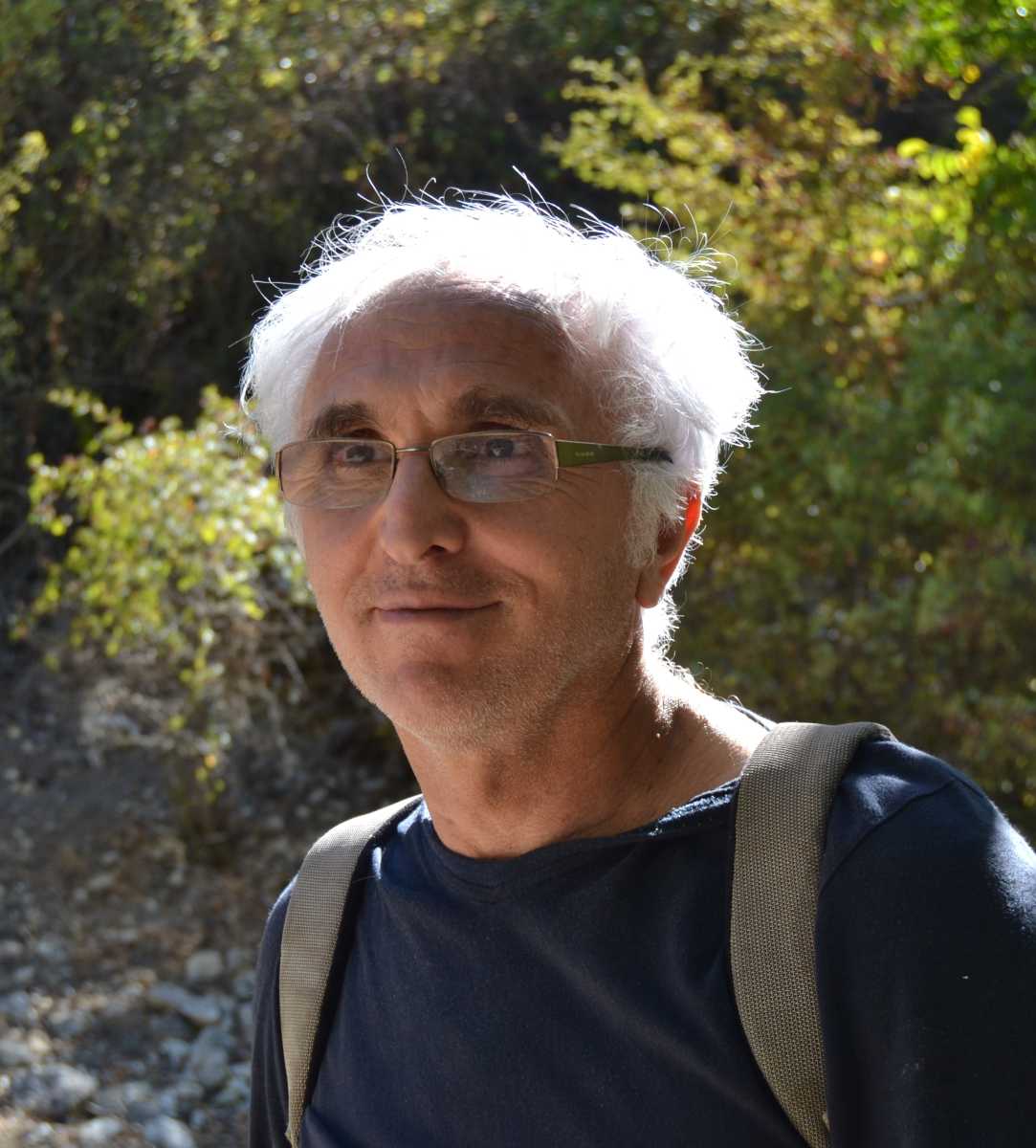THE ECHO OF DO-DO-NA
Edited on
30 November 2018The region of Molossia limited to the west with the Ionian Sea, to the south with Acarnania and Aetolia, to the southeast with Thessaly, to the east with Macedonia, to the northeast with Paeonia and to the north with the vast country of Illyria. Molossia was a mountainous country dominated by the Pindo range and the Acroceraunios mountains. Dodona, its capital, was located approximately in the center of this territory and it was famous for its oracle. Around the city of Dodona lived the Molossian factions of the Antitanes and other Epirote tribes about 2,500 years ago.

Everything in Greece starts with a myth. This is what the Greeks themselves confirm and this is how this journey and its story begin. The destiny, a sacred place, Dodona, whose sound resonates in time, in the form of music, philosophy, theater, prophecy ...
We do not know how many pilgrims travelled to the Sanctuary of Dodona in the crucial years when the region of Epirus lived its most renowned days. Perhaps from a temporary perspective its participation in history is seen as a Pyrrhic victory, but the evidence is that more than twenty centuries later its name still evokes distinction and character.

The old Dodona was transformed into Dodoni and is now an archaeological site that attracts more than 50,000 visitors each year. Only the foundations of the public and the religious buildings remain. However, the impressive size of the old Greek theater, built to host 17,000 people, stands erect, which shows the cultural, political and of course religious importance that the site must have had. The enclave has not lost an ounce of its majestic beauty and arrogant wrapping, a breathtaking valley surrounded by mountains, forests, villages and winding paths, witnesses to the old vestiges from the past, as different sources testify.
It is interesting to see how the evocation of Do-do-na impacts on other products and services that are presented as the contemporary identity of Epirus, under the rubric of the brand 'Dodoni'. Nevertheless, the town itself points to a series of problems that include the depopulation of the area and the lack of infrastructures or services. It is hard to understand how the municipality is not included in the management and promotion of the archaeological site, which is in the hands of the Greek national government and the region of Epirus. Good opportunities to improve the positioning of the territory, such as the excellent exhibition dedicated in 2016 to the Oracle of Dodona in the Acropolis Museum in Athens, obviated this reality and frustrated a more than worthy cooperation between the public actors involved. Something similar happens when you visit the archaeological site and there is no tourist information regarding the tourist services located in the surrounding area.
UNESCO itself has recognised (see document “Best practices in World Heritage: People and Communities”, 2015) the need to ensure participation of the local administrations in the management of heritage sites in order to make sure there is a direct benefit for their local communities.
It is obvious that the idea of ''local participation" should be critically analyzed taking into consideration that economic rights are deemed to be part of human rights, meaning that local communities directly related to the heritage sites should always be at the center of the decision making process and not simply a formal presence in the decision-making bodies.
A municipal management strategy
What strategy can Dodoni follow for the management of the local heritage in this context? Their participation in the INT-HERIT project is an opportunity to further the promotion of cultural resources linked to local economic development, an objective that is not easy considering their limited experience in the implementation of this type of plans. However, it is the desire to overcome this starting point that justifies the articulation of a Local Group around INT-HERIT and engages a large delegation of the European project partners to participate in a Transnational meeting that has taken place from the 6th to the 9th of November 2018.
The agenda of the meeting included the essential visit to the site of Dodona, along with other villages within the same municipality such as Kopani, where the Cultural Association organised a party in which music, gastronomy and the distillation of tsipouro encouraged a truly festive evening under the leadership of Kostas Pappás, vice president of the Local Cultural Association, and Fotiní Georgiádi as a master of ceremonies. Fotiní is a native of Kopani and divides her life between this small mountain town and the urban vanguard represented by the North American city of Seatle. A trip by bus led the group to another two valuable and interesting resources from the territory, the Popular Museum of Perdika being one of them, where the President of the Local Cultural Association, Kostas Ziakas, guided us in a visit to a set of outdoors located cottages that recreate the life of the rural community and to the main building where we could see a truly attractive and well-cared for ethnographic collection. The second visit, in Sklivani, was also conducted by the President of the Local Association, in this case Kostas Maggioros, who guided the visitors to the religious treasures (texts, icons, lamps, clothing ...) kept in the Ecclesiastical Museum.

Illustrated by the presentations made by the different guests to the event - Vassiliki Brachou, Paraskevi Yiouni, Polina Sygkouna and Maria Mizithra – , the participants formed a critical analysis that they tried to share with the hosts through a process where the aforementioned problems and challenges were addressed together with the possible alternatives that might contribute to modify the described trend. Three proposals were presented by the municipality's team to trigger this prospective analysis.
- The creation of a municipal strategy brand aimed at promoting Dodoni as a tourist destination.
- The continuity and enrichment of the programme for the Cultural Festival organised the last two years by the municipality in the archaeological site and the activation of a volunteering programme associated with it.
- The reinterpretation of activities (economic, cultural, etc.) which can take place in the surrounding area of the archaeological site, in particular in the protected zone, in accordance with state-level legislation.
A specific report will be produced with a summary of the suggestions and the discussion generated around these three issues, but according to the conversations held, we can advance that the institutional cooperation, the participation of the social and private actors, the territorial approach and the echo of the enclave itself and its history, should be at the centre of the vision and contents of any strategy to be implemented.

The Echo of the future
It is said that in Africa the death of an old man is a library on fire. I could remember this phrase surrounded by some books in the old school of Dodoni, now reconverted into a multi-purpose centre for cultural activities where the transnational seminar that inspires these reflections took place. Although I was happy to see the public buildings transformed and in use, instead of rubble and ruin, I could not help feeling that with the closure of each school in so many rural areas of Europe, the death of these rural villages is announced. Only the lazy cats and the birds that flitted through the trees were witnesses to the sound of the church bells on that autumnal morning in Dodoni.

But that bucolic image is not the only one that will help to mark the future of Dodoni. Together with the beauty of this image, the picture of determined entrepreneurs is fixed in this story, like Katerina, who manages the cozy Mirtali Art Hotel in the village of Manteio, accessible on foot from the Dodoni archaeological site, where the authenticity of the local culture together with a deep and respectful vision towards the environment and life itself can be felt. Or like Vassilis, trained as a teacher but forced into unemployment and now turned into an oregano producer and councillor for culture in the municipality. Also all those anonymous people that make up the cluster of cultural associations that preserve heritage and keep it alive and rich, such as the magnificent landscape where one day culture, religion, politics and economy merged to create this enclave whose resonance reaches our days.
But as we said, in Dodoni, in Greece, the echo is more than a sound phenomenon that can be recognized around a classical theater or a well-adapted natural environment. Here the 'Echo' is again myth, and once again the myth comes to our aid, to reflect past wisdom in order to build the future, to arrange the pieces around which to articulate a territorial strategy, the recreated odyssey of these heirs to Molossia.
Translation by Raquel Moreno Vicente
 Submitted by Antonio Zafra on
Submitted by Antonio Zafra on
